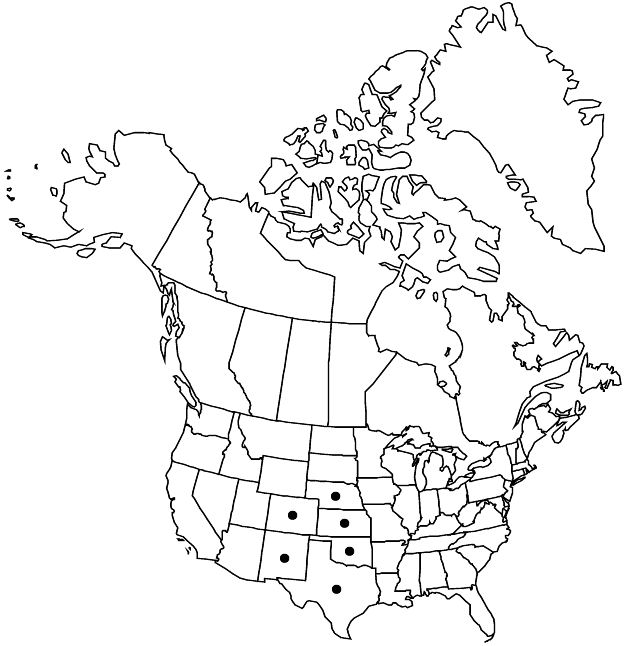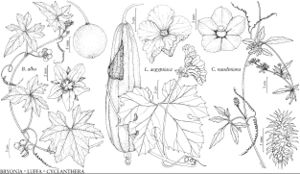Cyclanthera naudiniana
in A. L. P. P. de Candolle and C. de Candolle, Monogr. Phan. 3: 831. 1881.
Stems glabrous except for minutely villosulous nodes; tendrils unbranched, less commonly 2-branched. Leaves 3-foliolate, lateral pair of leaflets deeply to nearly completely divided (appearing 5-foliolate), petiolules 1–3(–5) mm, terminal leaflet 3–7 cm, blade lanceolate to narrowly or broadly lanceolate or elliptic-lanceolate, petiolule 5–15 or in fascicles of 2–3. Staminate corollas 4.2–6.3 mm diam. Anther heads 1.4–2.2(–2.8) mm diam., subsessile, consistently ciliate with a ring of short, white hairs arising just inside thecal ring. Fruiting peduncles 10–30 mm. Capsules ovoid, barely oblique-gibbous or not, short-beaked, 15–25 mm, spinules 3–5 mm.
Phenology: Flowering May–Oct.
Habitat: Canyons, rocky slopes, streamsides, riparian woods of elm-hackberry, sycamore, willow-cottonwood, juniper, oak-juniper, pinyon-oak-juniper, live oak, roadsides, open woods
Elevation: 200–1800 m
Distribution

Colo., Kans., Nebr., N.Mex., Okla., Tex.
Discussion
Cyclanthera naudiniana is distinct in its short, few-flowered staminate inflorescence, relatively large corollas and anther heads, and relatively long fruiting peduncles. In Texas it is most abundant on the eastern edge of the Edwards Plateau.
Selected References
None.
